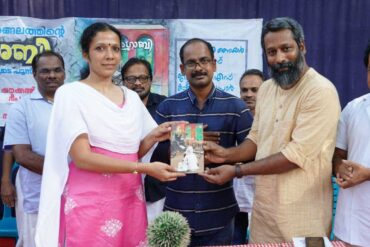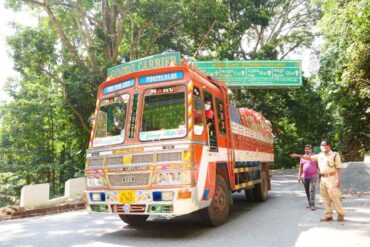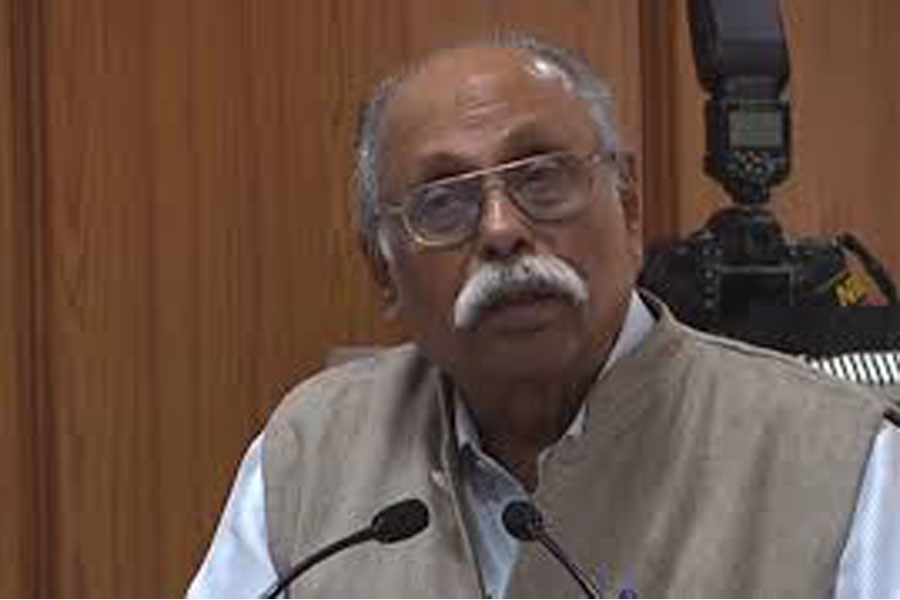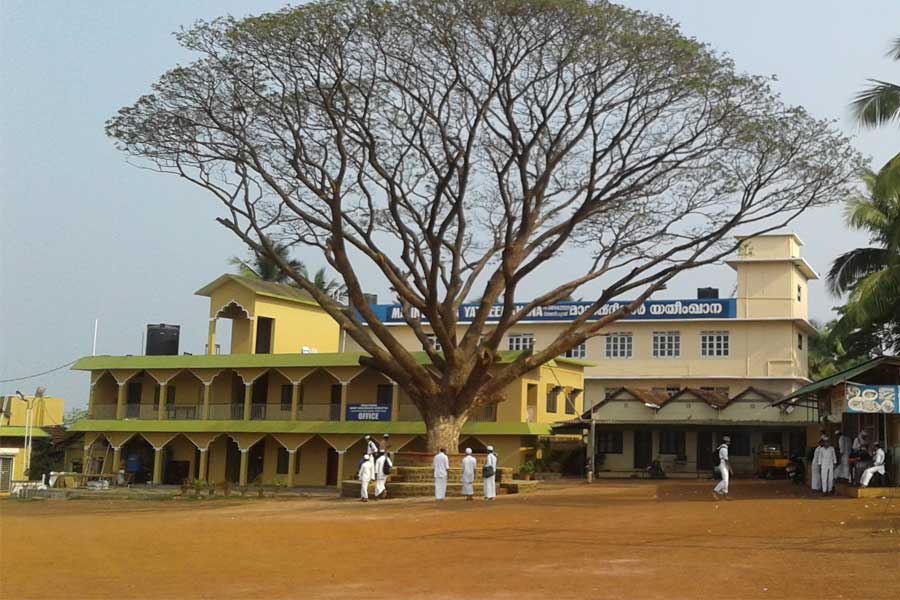The year was 1980 and Giani Zail Singh was the Union Home Minister in the post-Janata Government of Indira Gandhi. At that time, P S Krishnan was a Joint Secretary with the Ministry of Home Affairs, in charge of SC and BC Development and Welfare. In fact, he had been occupying the position since 1978 when the Janata Party was in power.
Noticing the consistency and seriousness with which Krishnan was pursuing issues concerning the Dalits, Zail Singh was intrigued and began to ask other officers in the ministry what Krishnan’s caste was. They told Singh that to their knowledge, Krishnan’s position was always that he had no caste. S Varadan, then additional secretary of the ministry, told the minister that he knew Krishnan for the past 30 years and Krishnan’s consistently had said he was casteless.
A few months later, at the sidelines of a meeting, Singh told Krishnan about his enquiries and the replies he got from other officers. The Home Minister informed Krishnan that he had found out that Krishnan belonged to a ‘higher’ caste and enquired why he chose to conceal his caste despite that. The implication of this query was that it is only persons born in ‘lower’ castes who needed to conceal their caste and not the ‘high castes’.
Krishnan told the minister that his was not an act of concealment of caste but denial of caste. He had also clarified that his denial of caste and opposition to caste was not directed against any particular caste, but against the entire caste system. Singh summed up his feelings by saying,
“God has given you the Buddhi to serve the deprived and the poor”. Singh was a rare BC person who had risen to a high political position as a State Chief Minister and Union Home Minister and in the Congress Party on his own strength, and finally, President of India. He belonged to an artisan caste. Others knew him as a person typical of the political culture of our country. I knew him as a person with sincere feelings towards Dalits,” remembered Krishnan when this correspondent met him at his Gurgaon residence in September this year.
P S Krishnan, who died aged 87 in a Delhi hospital on November 10, single-mindedly promoted the cause of the socially deprived. An Andhra Pradesh cadre IAS officer, he never changed his ways while rising up the ranks and moving to Delhi to hold union government posts that included the job of social justice secretary.
In a discussion in the early 1980s with the University Grants Commission (UGC)—Madhuri R Shah was its chairperson and Mr R K Chabbra was its secretary—Krishnan wanted the UGC to compel the universities to follow the rules of reservation in admissions as well as postings and withhold release of funds for salaries to any university that failed to do so, until it complied with the UGC’s direction in this regard. When the Secretary pleaded that the law does not provide powers to UGC to do so, Krishnan pointed out specific provisions in the UGC Act which, correctly interpreted, did empower the UGC to enforce the rules of reservation.
Till his last breath Krishnan campaigned to promote the rights, dignity and welfare of Dalits, tribal and other backward communities, through executive and legislative effort and in that process attracted hostility and persecution from powerful people. But he faced the challenge head-on. Even in the post-retirement phase, he had worked with passion and single-minded devotion for the advancement and empowerment of the Scheduled Castes (SC), Scheduled Tribes (ST) and Backward Classes (BC), including religious minorities among them.
Both in and outside the power corridors, he wanted to mould governance and public administration into a pro-active instrument of reaching out to the deprived communities. In that quest, he had often met with antagonism, hostility and persecution from powerful sections, which he faced cheerfully and undauntedly. His unconventional way of governance had invited the wrath of higher authorities on many occasions. Among Indian bureaucrats, he was the rarest of the rare.
Above all else, it was his obsession for social justice that moulded Krishnan as India’s topmost bureaucrat-activist. Krishnan always termed caste as a “the civilizational fault-line of India”. According to him, his vision was a blend of many ideologies; of Ambedkar, Mahatma Gandhi, Narayana Guru, Vivekananda, Periyar, and Karl Marx. Armed with his encyclopaedic knowledge of India’s thousands of castes and their regional variations, he evolved his strategies based on unassailable constitutional and legal premises, crafting them in intricate details.
It was a young Krishnan who, during his Andhra Pradesh stint, pioneered the practice of officially camping in Dalit, tribal and backward-class hamlets in 1957. “It was my belief that truth and facts on any issue are out in the field for anyone who wants to go there and pick them up. Files and papers do not bring the whole truth and sometimes distort them. When one makes enquiries in the village, in the habitation of the people in the presence of the entire population of the village/habitation, nobody will dare to speak untruth about land, ownership, occupancy of land, caste and other such facts. So whenever any issue arose, I would go to the village, talk to the people, get their version and then come to a conclusion. This method always enabled me to get at the truth, especially in relation to Dalits and other deprived classes and their rights,” recalled Krishnan once when asked about his style of functioning while working in the backward regions of the then undivided state of Andhra Pradesh.
“From the very beginning, I viewed everything, every programme and every legislation from the point of view of what is there or not there in it for the Dalits/Scheduled Castes (SCs), Adivasis/Scheduled Tribes (STs) and the Socially and Educationally Backward Classes (BCs). I also took the approach of implementing every programme with care to ensure that the SCs, STs and BCs got their due share out of it. In the second month of our training, we were taken to a village for study. The village selected was Haiderpur, a hamlet of Badli in Alipur Block near Delhi. We visited the village every day for a month. From the second day of our visit, I detached myself from the rest and visited the SC basti of Haiderpur. I recall one of the SC persons of the hamlet, namely, Ishwar Dass, who held his infant in his hand. The child had scabs all over the body. I consulted the doctor of the Training School and took medicines for the child. The month-long visit helped me to understand the conditions of SCs in the vicinity of Delhi. They were as miserable as in the rest of the country,” he recalled during one of our meetings.
In his different capacities ranging from District Collector to Government of India Secretary, Krishnan had conceived and implemented various pioneering initiatives for the deprived classes like the Special Component Plan for Scheduled Castes (SCP) in 1978 and the Special Central Assistance to the States’ SCPs and central assistance to States for their SC Development Corporations and many other schemes.
His was the heart, brain and hand behind a number of constitutional and legislative enactments like the Constitution (65th) Amendment Act, 1990 vesting constitutional status in the National Commission for SCs and STs, legislation providing SC status to Dalit Buddhists, the SC and ST (Prevention of Atrocities) Act 1989 (and later the SC and ST (Prevention of Atrocities) Amendment Act, 2015), the Employment of Manual Scavengers and Construction of Dry Latrines (Prohibition) Act, 1993 (and later, its amended version, the Prohibition of Employment as Manual Scavengers and their Rehabilitation Act, 2013). As Secretary, Ministry of Welfare in 1990, he persuaded the V P Singh government to implement the Mandal Commission report facilitating the long-denied recognition for the Socially and Educationally Backward Classes (BCs) at the national level and provide reservation for them, and laid the base for its successful defence in the Supreme Court.
After retirement in 1990, he was a Member of the National Commission for SCs and STs in 1991-92 and Member of the Expert Committee on Backward Classes in 1993 and Member-Secretary, National Commission for Backward Classes, 1993-2000. In that capacity, he operationalised Reservation for BCs and prepared Central (Common) Lists of BCs, ensuring that genuinely backward communities left out were brought into the Central List and communities not socially backward were scrupulously kept out.
In 2006, the Government of India took his help as advisor to guide the defence of its legislation providing reservation for SCs, STs and BCs in admission to educational institutions in the Supreme Court, resulting in the upholding of its Constitutional validity in 2008. The Government of Andhra Pradesh took his help as advisor in 2007 to identify the Socially and Educationally Backward Classes of Muslims and on the basis of his encyclopaedic analysis, the Government had enacted legislation providing 4 per cent reservation for them.
Post retirement, he had associated closely with a number of NGOs working for the rights of SCs, STs, BCs, including Muslims and other Minority BCs. He had been the Chairman and member of many Working Groups and Steering Committees of the Planning Commission and Government Committees on these communities.
What was his role in the implementation of the Mandal Commission report? He answers so:
“The Mandal Commission submitted its report on December 31, 1980. After an unconscionable delay of nearly 10 years, the Central Government in August 1990 accepted the Mandal Commission’s recommendation to provide 27 per cent reservation of posts for the BCs. It was on the basis of my note to the Cabinet dated May 1, 1990, in my capacity as Secretary, Ministry of Welfare, that the V P Singh government took the momentous and historical decision recognising the BCs and providing 27 per cent reservation for them in direct recruitments under the central government. In the preceding ten years after the Mandal Commission submitted its Report on December 31, 1980, its implementation was being evaded. Various subterfuges were resorted to. Conferences of ministers, secretaries, state chief ministers punctuated the period in order that reservation for BCs at the Centre could be avoided. Various ill-informed objections and queries were raised. The Mandal report was left for dead. I found its pulse was still beating though feebly when I took charge as Secretary on January 2,1990, revived it and, on the basis of social and historical facts and realities and Constitutional mandates, refuted the ten-year long objections and queries.
On the August 6, 1990, V P Singh had his final discussion with minister Ram Vilas Paswan and me in two nocturnal sessions and took the decision to introduce reservation for the BCs. I drafted for him the emotional, moving and dignified speech he delivered in the Lok Sabha on August 7, 1990, announcing the Government’s decision, and on August 9,1990, in the Rajya Sabha, and provided to him, from the officers’ gallery where I was seated, all the inputs to effectively counter the points raised by the Opposition during the debate. The formal order providing 27 per cent reservation for BCs was issued. It was my steadfast stand which helped to secure BCs implementation of the report which was long overdue.”
Here is the take of P S Krishnan on his role in the implementation of Scheduled Castes and Scheduled Tribes (Prevention of Atrocities) Act 1989 (POA Act):
“It was in response to growing atrocities against Dalits and tribals at the national level, the Scheduled Castes and Scheduled Tribes (Prevention of Atrocities) Act 1989 (POA Act) was enacted. I was the prime mover for securing the enactment of this legislation. At that time I was Special Commissioner for SCs (Constitutional machinery before National Commission for SCs and STs) from October 2, 1987 till January 1, 1990 with the rank of Secretary to Government of India (equivalent to the Chief Secretary of the State).
As I mentioned earlier, this Act was a watershed in Dalit jurisprudence. It created a formal statutory right for the SCs and STs for effective protection of the law and protection from various forms of violence and crimes against them. This right is no doubt embedded in the Constitution in Article 21 (Right to Life) and Article 46 (Promotion of educational and economic interests of SCs and STs and their protection). But a specific statute with detailed provisions became and continues to be necessary to translate the constitutional right into actual functioning right. This is what was achieved by the POA Act in its field.
But in the circumstances in which this came into being, certain provisions which I considered necessary and pressed for did not find place in the original Act. An important example is the establishment of special courts in each district exclusively to try cases of atrocities which I had pressed for. This was diluted in the Act by providing for ‘specification’ of an existing court of sessions in each district as a special court under the Act. As these courts, “specified” or designated as special courts, continue to deal also with numerous other cases as usual and as before, the purpose of speedy trial was not achieved. Other important lacunae included omission of murders, mass murders, rapes, social boycott and economic boycott which I had wanted to be included as atrocities.
After the POA Act 1989 was passed, I took every opportunity to move for the rectification of these omissions. A major step in this direction was the Dalit Manifesto Incorporating the rights and entitlements of Scheduled Castes, Scheduled Tribes and Backward Classes, which I prepared in 1996 under the auspices of the National Action Forum for Social Justice and is included as Appendix-1 in my book Empowering Dalits for Empowering India: A Road-Map [Manak Publications, Delhi, 2009].
This Dalit Manifesto, which inter alia contained points of action relating to rectification of the omissions in the POA Act, was accepted in toto by the United Front (UF) Government as part of its Common Minimum Programme (CMP) 1996. But the UF Government could not legislate on this for reasons including the brevity of its tenure. It was in 2015, the amended act came into being. The amended act contained all modifications suggested by me.”
During the last days, he was in association with younger colleagues and social workers, feverishly working on pushing governments his roadmap of comprehensive legislative and programmatic/schematic measures required for the holistic advancement of SCs, STs and BCs, especially the Extremely Backward castes of the BCs, to enable them to reach the level of Equality with Socially Advanced Castes.
The Thiruvananthapuram-born Krishnan is definitely a proud son of Kerala though the state and its intelligentsia seldom acknowledged his contributions.







